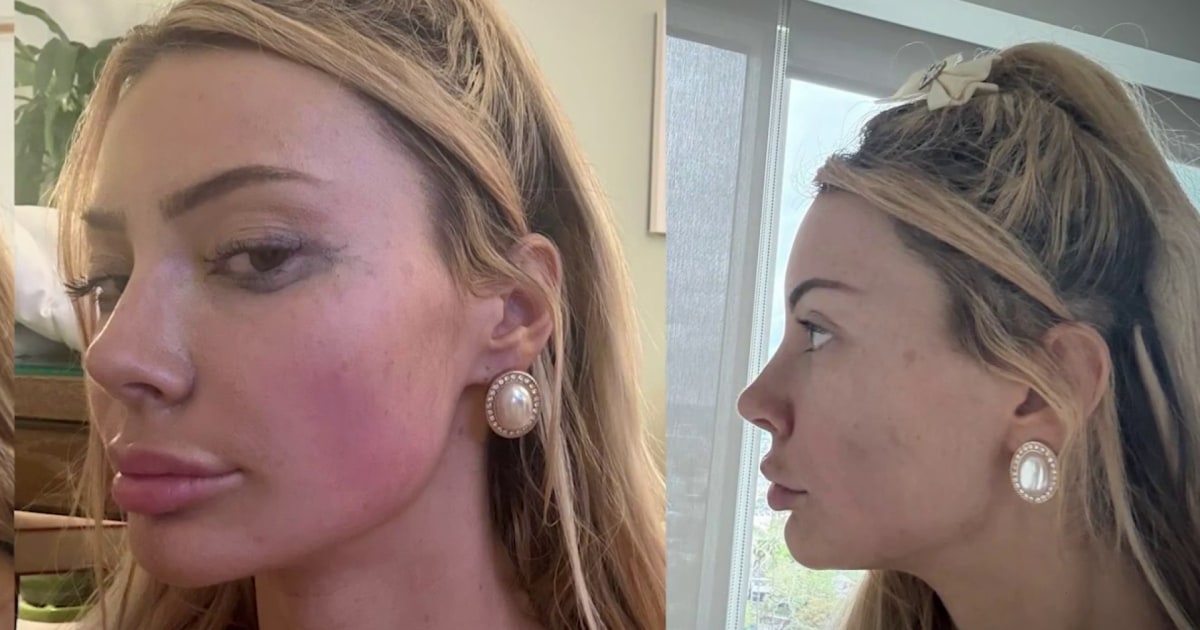A new NIH announcement includes updated Terms and Conditions to grant awards that can make it even easier to terminate such grants. (Photo by DOMINIC GWINN/Middle East Images/AFP via Getty Images)
Middle East Images/AFP via Getty Images
So, you’ve put your blood, sweat and tears into a proposal to do some kind of prevent-or-treat-disease and find-ways-to-help-humans project. And somehow against worsening now well-below-10% odds you’ve managed to get your project funded by the National Institutes of Health. What would you most like to hear? How about news that the NIH under the Trump administration has just made it even easier to terminate your research grant at any time?
NIH Issued Updated Terms And Conditions Of Awards
Yep, on November 18, 2025, the NIH issued an “Updated Terms and Conditions of Awards.” These updated terms did include fairly standard language like “By accepting an NIH award, the recipient agrees that continued funding for the award is contingent upon the availability of appropriated funds, recipient satisfactory performance, compliance with the Terms and Conditions of the award.” It’s always been the case that grant funding can be withdrawn if fraud or abuse occur or the recipient isn’t really doing any acceptable scientific work with the funding.
However, there was also a kicker, as in something that could end up kicking you in the behind if you don’t notice it. It’s the sentence that read, “[The award] may also otherwise be terminated, to the extent authorized by law, if the agency determines that the award no longer effectuates the program goals or agency priorities, in line with 2 CFR 200.340(a)(4).” This may seem like small change. But sometimes small things can end up causing big issues.
You may have noticed the word “effectuate” at the center of that statement and be wondering what the eff that means. Well, Dictionary.com does define “effectuate” as “to bring about,” which doesn’t quite effectuate clarity. Effectuate isn’t a word that you necessarily see or use everyday. Like you probably don’t typically tell someone taking your order at a restaurant, “Could you please effectuate for me a hamburger, fries and a fruitcake?” And if you were to tell your significant other, “You are no longer effectuating my priorities,” that might effectuate a middle finger to you.
The other vague thing in the statement is the whole “program goals or agency priorities” thing. How exactly will these goals and priorities be defined? Will they be clearly listed somewhere? How might they change after you get the award? Does this feel a bit like, “We’ll keep funding you as long as we feel like doing so?” I’m reaching out to my contacts at the U.S. Department of Health and Human Services and the NIH to bring about—or, er, effectuate—more clarity on the situation.
The New Terms And Conditions May Make Make It Easier For The NIH To Terminate Grants
One big concern is that such vagueness might give NIH administrators and whatever Presidential administration happens to be overseeing NIH at the time even more leeway to justify yanking your federal funding at any time. The Trump administration has been doing a lot of the premature termination thing since January 2025, as I’ve described in Forbes. This has included terminating or partially terminating grants that have been producing what the investigators had originally indicated they would produce. The justification often used for such terminations has been that the funded projects no longer matched the priorities of the NIH as guided by the Executive Orders signed by President Donald Trump earlier this year.
Such grant terminations were relatively rare in the past and usually only resulted when there was fraud, abuse or failure to generate any notable scientific output. Therefore, it’s not surprising that the many grant terminations this year have prompted a barrage of legal challenges from universities and scientific organizations. So far, courts have upheld many of these challenges. And this latest NIH announcement did say, “Any term or condition in this Notice of Award, including those incorporated by reference, that NIH is enjoined by court order from imposing or enforcing, shall not apply or be enforced as to any recipient or subrecipient to which that court order applies and while that court order is in effect.”
But these newly altered terms and conditions could make such legal challenges that much more difficult to do in the future. Make that the very near future. Actually the announcement went back to the future, declaring that as of October 1, 2025, it effectively changes the terms of all new NIH Notices of Award. And while the NIH says new now, it will eventually mean all awards, new and old. The NIH announcement stated, “These terms of award will be applied prospectively to new, renewal, supplement, or continuation awards issued on or after October 1, 2025.”
If you have a five-year award and think you are somehow immune to this change, think again. For any award—including a grant award than spans multiple years—you are supposed to get what’s called a Notice of Award each and every year from the NIH. This NOA will spell out the terms for that award for that coming year, overriding all terms that existed in previous years. Therefore, eventually your grant award will incorporate these new “effectuate” terms and conditions, assuming, of course, that your grant is not terminated early. So get ready to have your grant funding even less secure.
Making NIH Grant Termination Easier Could Have Far Reaching Effects
All of this could make NIH grant funding even more unstable, which is something that you don’t want when it comes to medical/health research. Doing real research is not like simply selling stuff on the Internet. You can’t just pivot to a new item when your bearskin underwear products seem to be selling more like fruitcakes than hotcakes. Setting up a scientific research project can take a lot more time, effort and investment in general before any results are even generated. Therefore, you do need some assurances that the plug won’t be pulled arbitrarily at some point in the future. Otherwise it could be really difficult, for example, to hire personnel when you can’t offer them some measure of job security.
Being told that your grant can be pulled at any time even if the project is going according to schedule or even producing lots of good results can be like being told that you can attend a college you might kicked off campus at any moment if you don’t match what the college wants or you can get married but your spouse could leave at the first argument. It can leave you feeling insecure all the time and behaving in ways that won’t help science and medicine. For example, you might spend even more time hunting and hustling for money rather than doing actual science.
Such instability could lead to shoddier and shoddier research projects as well. Would you be willing to embark on riskier and potentially more innovative directions—like going against the grain to develop a new treatment for a disease? Or would you instead be incentivized to do more play-it-safe-and-do-whatever-everyone-else-is-doing work?Will you be hesitant to pursue very promising and unexpected leads in a project because you are perpetually worried that whatever new turns the project takes may no longer effectuate the program goals or agency priorities, whatever that means.
All of this could in turn “effectuate” the departure of a lot of scientific talent from research careers in the U.S.. After all, you’ve gotta look at why scientists entered research careers in the first place. It’s not because of visions of driving around Lamborghinis or wearing the $4 million strapless ballgown by Raf Simons for Christian Dior Haute Couture that Jennifer Lawrence wore at the Oscars. NO, quite the opposite. Researchers often sacrifice opportunities to make more money in favor of settings that can give them the stability, freedom and autonomy to pursue key scientific questions and help make the world a better place.
Take the stability and autonomy things out of the mix and what then do they have? As the saying goes for companies, organizations and industries, when things get bad, the people who can leave will leave first. All of this could accelerate the brain drain that has already occurring in the U.S., where those with scientific talent are leaving the country or science altogether. The U.S. could soon become like the Pittsburgh Pirates of science and lose its top dog status around the world.
And losing top dog status would be “ruff” for anyone with human body parts in this country. I’ve also written in Forbes recently about the impact on people’s health that the premature termination of NIH grants can have. Think about how many wasted opportunities ot prevent and treat diseases may result. Some day you may not have the treatment that you need to extend your health and life because some grants had been terminated.
Finally, there’s the increasing problem of politics trumping science. Giving someone in some office somewhere even more power to pull NIH grant funding further raises the risk that a non-scientist like some administrator or politician can pick and choose what type of research is done and hold undue influence over what that research says. Ultimately science needs to be independent and as free of political influence as possible. Science is about uncovering the truth and not serving any particular person’s narrative. After all, when you are in the hospital getting a treatment for life-threatening medical condition, you want that treatment to be evidence-based and not politics-based.








